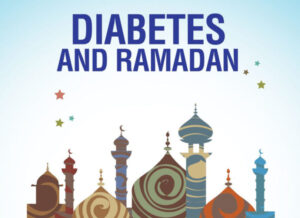Fasting For Ramadan With Diabetes? Here’s How To Stay Safe & Healthy


Source: Joslin Diabetes Centre
The holy month of Ramadan, also known as Ramzan, is an eagerly awaited time for Muslims around the world. The month-long fast, which begins with the sighting of the crescent moon, is a time of spiritual reflection, self-discipline, and purification. This year, Ramadan is expected to begin on March 22 if the crescent moon is sighted in Saudi Arabia, UAE, and other Muslim-majority nations on the evening of March 21.
During the fast, Muslims who observe the ‘roze’ do not eat or drink from dawn to dusk and traditionally break their fast with a date. However, for people with diabetes, fasting for long hours can be challenging and requires careful planning and preparation. They must seek advice from their healthcare experts regarding adjustment of their insulin dosage or changes in their diabetes medication.

Source: GetDoc
It is important for diabetics to monitor their blood sugar levels regularly during the fast, as they are at risk of hypoglycemia or hyperglycemia. During the fast, diabetes can be managed by drinking enough water, eating nutrient-dense foods, and avoiding high-sugar and calorie-dense items.
According to Dt. Vaishali Verma, Consultant- Nutrition and Dietetics, HCMCT Manipal Hospital, Dwarka, people who fast for many hours each day may tend to overeat during morning and night meals, which can be dangerous for diabetic patients. Food consumed during Ramadan may be fried, oily, and sweet, raising blood sugar levels and posing serious hazards like obesity, hypertension, and fatty liver.

Source: BeatO
Here are some tips for people with diabetes to take care of their health during Ramadan:
1. Get enough sleep: It is essential to get a sufficient amount of sleep for overall wellness, especially during fasting. You must eat Sehri, your pre-dawn meal, throughout Ramadan, and you need to have enough stamina to get through the day without getting sleepy. Hence, it is advised to get up at least an hour earlier, get ready, prepare, and eat a meal correctly and without interruption.
2. Hydrate yourself well before and after fasting: Dehydration is a common and serious risk faced especially by diabetic patients. Buttermilk, coconut water, melons, fresh fruit juices with less sugar, pomegranate molasses, locust bean beverages, rose sharbats, and lemon water or nimboo pani all aid in maintaining normal bodily fluids and are quite hydrating. Avoid drinking caffeinated beverages like coffee and tea since they may cause the body to lose minerals and salts.
3. Include probiotics: After your sehri meal, a dollop of yoghurt can do wonders for your health. Along with soothing the stomach, it also prevents acidity and guards against dehydration throughout the day.
4. Open your fast with sugar-free drink: For Iftar, open your fast with a sugar-free hydrating drink and then move on to eating in moderation. Steer away from foods that are high in fat content, carbs, and salt like samosa, kebabs, poori. Choose lean meats like skinless chicken and fish as well as leafy vegetables, fruits, and dry fruits. Choose items that have been cooked in low-fat methods such as baking, prolonged steaming, grilling, and shallow frying.
5. Avoid the three S – Salty, spicy, and sugary food: Limit your spice, salt, and sugar intake during your sehri meal. These foods’ salt content aids in preserving your body’s fluid equilibrium. The withdrawal of water from the cells after eating highly salted meals can cause thirst later.
6. Monitor blood sugar levels: These foods’ salt content aids in preserving your body’s fluid equilibrium. The withdrawal of water from the cells after eating highly salted meals can cause thirst later.

Source: Health Checkup Packages Dubai